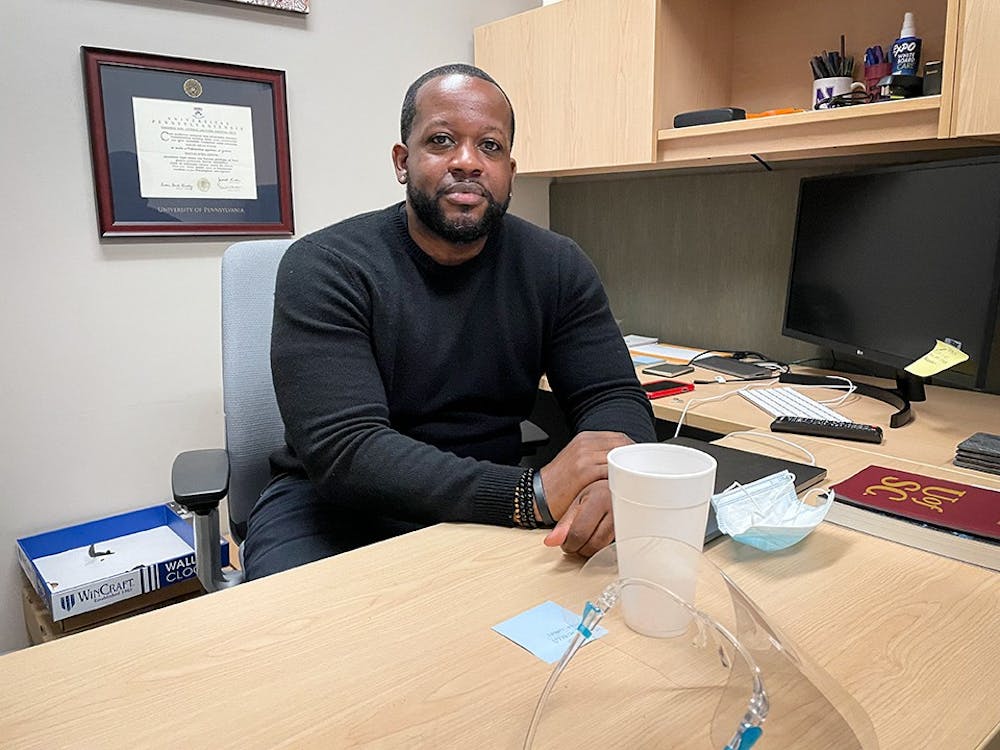From the stage to the classroom, Jabari Evans has unique experiences to bring to the School of Journalism and Mass Communications. Evans, who raps under the stage name "Naledge" and is one half of the hip-hop group "Kidz in the Hall," has many stories to tell at USC.
"Kidz in the Hall" formed at the University of Pennsylvania, where the group began making music and playing local venues. From there, the group took off and toured the country. Evans said he was inspired to start making music because of his cousin, who he looked up to as a child.
"When I would sit next to (my cousin), he would always have his headphones on, and he's always, like, bobbing his head. I was just like, 'What are you doing?' He seemed so focused on this thing," Evans said. "I guess it was a way to get my cousin's attention. I figured I needed to be doing whatever was in those headphones to figure out what he was doing that was so cool.”
From that point on, he knew he wanted to make music. He would go with his cousin to the studio to record music and was hooked from the beginning. His music gained popularity: people were liking what he was putting out, which encouraged him to continue with it.
Evans said his favorite thing about being a musician was being able to tour the world and gain lots of experiences. He made many connections through his work, all of which play a role in his lessons.
“My credibility as someone who's produced culture, as well as someone who studied it, makes it far more interesting in the classroom," said Evans. "So I can bring in examples. I can bring in guest speakers."
Recently, Vic Mensa, a rapper and activist, and Marquis Daisy, a director for ESPN, spoke to Evans' classes, he said.
Evans has embraced multiple forms of media throughout his life. He has written books on multiple subjects including music in the classroom, racial identity and critical voice in the media, children and media, and hip-hop’s role in education, and he has a new book in the works.
“I've always been fascinated with media. I've been fascinated with media since I was four years old. If you asked me what I was going to be when I grew up when I was a second grade, I would have said, 'Work at ESPN,' said Evans. "So you know, I've always had a want to be in and around media and create media. It just shifted to different things, whether it was music, whether it was journalism.”
Having both multiple aspirations and a wide variety of life experiences has allowed for Evans' teaching style to be adaptable and for his knowledge of his subject area to be well-rounded.
"(Evans has made) it more clear on how, for instance, black women are perceived in media. I think we all know pretty much how we're perceived, but it's like hearing actual history behind it and why certain things happen and just hearing the behind the scenes, because him being in the music industry, I think he really is knowledgeable about a lot more things behind the scenes,” Brianna Holman, a second-year broadcast journalism student, said.
Additionally, students said Evans' teaching style is casual, discussion-based, interactive and conversational.
“I think, kind of the way it's structured, it feels really casual, but you're still having pretty in-depth discussions. A lot of it, it's like we kind of discuss and then talk about our opinions, but also like ways we think we could improve something," Miranda Butler, a fourth-year public relations student said.

